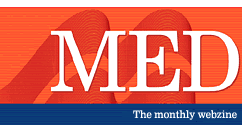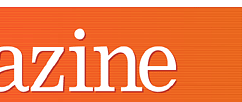 |
 |
 |
 |
 |
 |
|
|
|||
|
I am always interested to read people's views on the current trends taking place in English Language Teaching. It gives me new perspectives on what I do, and makes me feel up to date. So when MED Magazine asked me to put my own thoughts about key trends in ELT into a short article, I was pleased to agree. Of the many changes and trends taking place today, I have selected ten that I think are important, and will make a difference. In this article I'll comment briefly on these trends, and at the end I'll take a look at a deeper trend that I think underlies them. You may well think of important trends that I have omitted. If you would like to share your ideas with other readers, we'll be pleased to hear from you. 1 Networking, interest and support groups E-communication has made possible a huge range of networking possibilities, including special interest groups, support groups, discussion and chat rooms etc. One effect of this has been to give us access to the experiences of many others, and to enable us to locate and to create the 'local' knowledge that relates to our own needs. This in turn has enabled us to become a bit less dependent on knowledge generated by 'experts' in other contexts, and on the authority of 'the published book'. We are all able to participate in the generation of knowledge and knowledge itself becomes a process rather than finished product. 2 Learner centredness and learner needs Interest in learner centred approaches is high on many agendas. This includes attention to learner styles, self direction, self evaluation, multiple intelligences, affective factors in learning, etc. This agenda can be hijacked in a number of directions, for example by methodologies that espouse learner centredness (LC) at one level, yet are highly directive at another; or materials that take a limiting view of LC, or so-called learner training that has been hierarchically determined. But the growing interest in learner centredness indicates a new and emerging valuing of diversity and difference, which also links with the points I made about networking. 3 Reflective practice and teacher learning This is about teachers questioning and exploring their own practice of teaching. It is a sort of systematic curiosity about going beyond the edges of what we know and do, to find out how we could do things differently or better. Of particular interest are questions like 'Is there a discrepancy between what I say I do and what I actually do?' Action research might guide us to try to become more aware of our own beliefs and how they frame the way we teach and think about teaching. It brings an appreciation of the existence of this frame, and rigour about surfacing our unconscious slants, skews and biases if we want to make real changes to our practice. Ruddock, quoted in Psychology for Language Teachers says:
4 Portfolio development for teachers This is linked to reflective practice. I refer to a portfolio as the teachers' own statement of their teaching beliefs and values, and a profile of themselves in action. It consists of the teachers' own selection of whatever represents the best parts of their practice, including activities, materials designed, feedback from learners and peers, problems and difficulties faced and worked through, observation notes, test results, videos and audio tapes, anecdotes and stories, own reflections, plans, diary notes and so on. And all these selections are linked by a commentary saying why these selections were made and what they show. Portfolios encourage teachers to make their own meaning, define their own success, and to view their work consciously and critically from multiple perspectives. 5 Syllabus design/materials development/global and local publishing Some people say that the majority of 'blockbuster' courses indicate that there is not much innovation, but there have been noticeable and significant developments in content (becoming less ethnocentric, more intercultural; less stereotyped, more critical), in syllabus (reflecting new descriptive information about language) and in methodology (reflecting ideas of student learning style and self direction). There has also been an increasing tendency towards more locally relevant non-global publishing of courses and materials. 6 Criticism of published materials However, some of the criticisms of coursebooks and materials are opening up real areas for future development, for example, criticisms that focus on banal content in materials, seen as insulting to learner intelligence and as missing golden opportunities for content learning (for example teaching school subjects in or through English) or for values-laden teaching (e.g. developing global citizenship as a core content in global language learning). Other criticisms focus not so much on the coursebook, as on the grip of 'coursebook methodology'. But many teachers point out the great benefits they derive in developing their own knowledge, skills and confidence through using modern coursebooks. 7 English as an International Language This debate relates to almost everything: Who owns English? Which English do we teach? Who are the best teachers: natives or non native speakers? Can you separate language from culture? Do you see English as an international language, or as a lingua franca? And what about linguistic imperialism? Arguments are often accompanied by statistics that show, for example, that non-native speakers of English greatly outnumber native speakers, and that of the native speakers of English, those who speak RP English or Standard American are greatly outnumbered by speakers of other varieties. Fantastic computer corpora, holding vast amounts of real language, coupled with computer software for sorting it and turning it into usable data, and lexicographic software that enables brand new dictionaries to be written in 3 or 4 years, have all played a part in the move away from somewhat subjective (or sometimes even imaginary) views of how words and grammatical forms are used, and from prescriptive views about how we should use them, towards a focus on 'real' language and a descriptive approach to how it is used. The move away from prescription of course fits with the questions about who owns English and who decides how it is to be used. 9 From where
might next developments come? 10 Frustration that everyday teaching life does not following these trends I know many teachers who are aware of these and other trends taking place today, and for some of them the main trend seems to be frustration that they are not in a situation where they can go with these trends. This may be due to constraints in the place where they work, and it may be due to other conditions such as lack of learner motivation, discipline problems, interest in grades rather than learning and so on. So, these invitations to change may frustrate those who feel restrained from changing. It seems to me that that these trends mark a move away from simple, certain, controlled and established ways of doing things towards complex, uncertain, less controlled and emergent ways of doing things. Unless I am fooling myself, the trends are towards an increasing valuing of participation in the creation of knowledge, a greater voice for diversity and difference, a preference for connectivity and relationship, and a developing tolerance, even delight, in working with the fuzzy, the unclear, the unfinished. Psychology for Language Teachers,
M. Williams and R. L. Burden (Cambridge University Press, 1997) |
||
|
|
|||